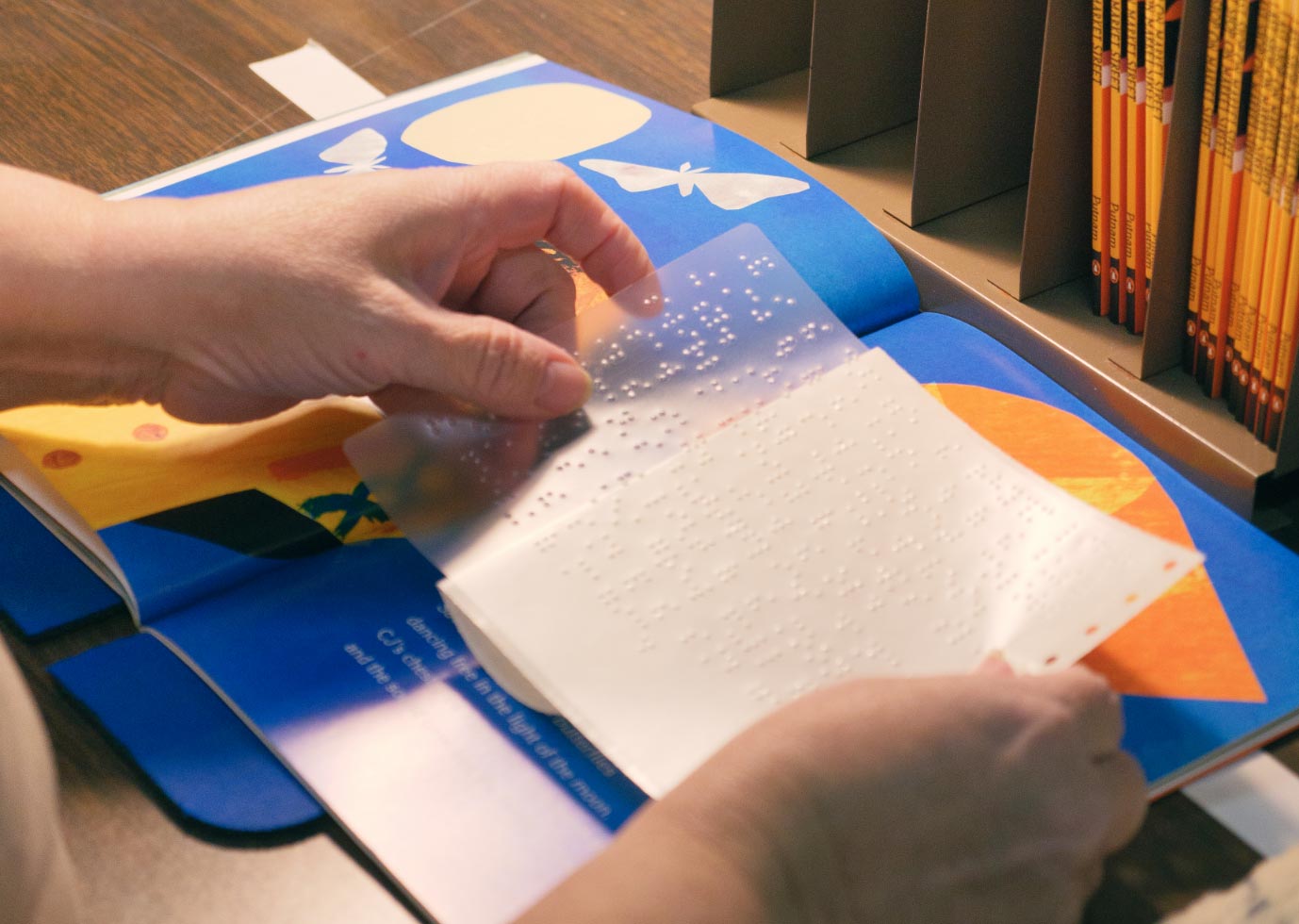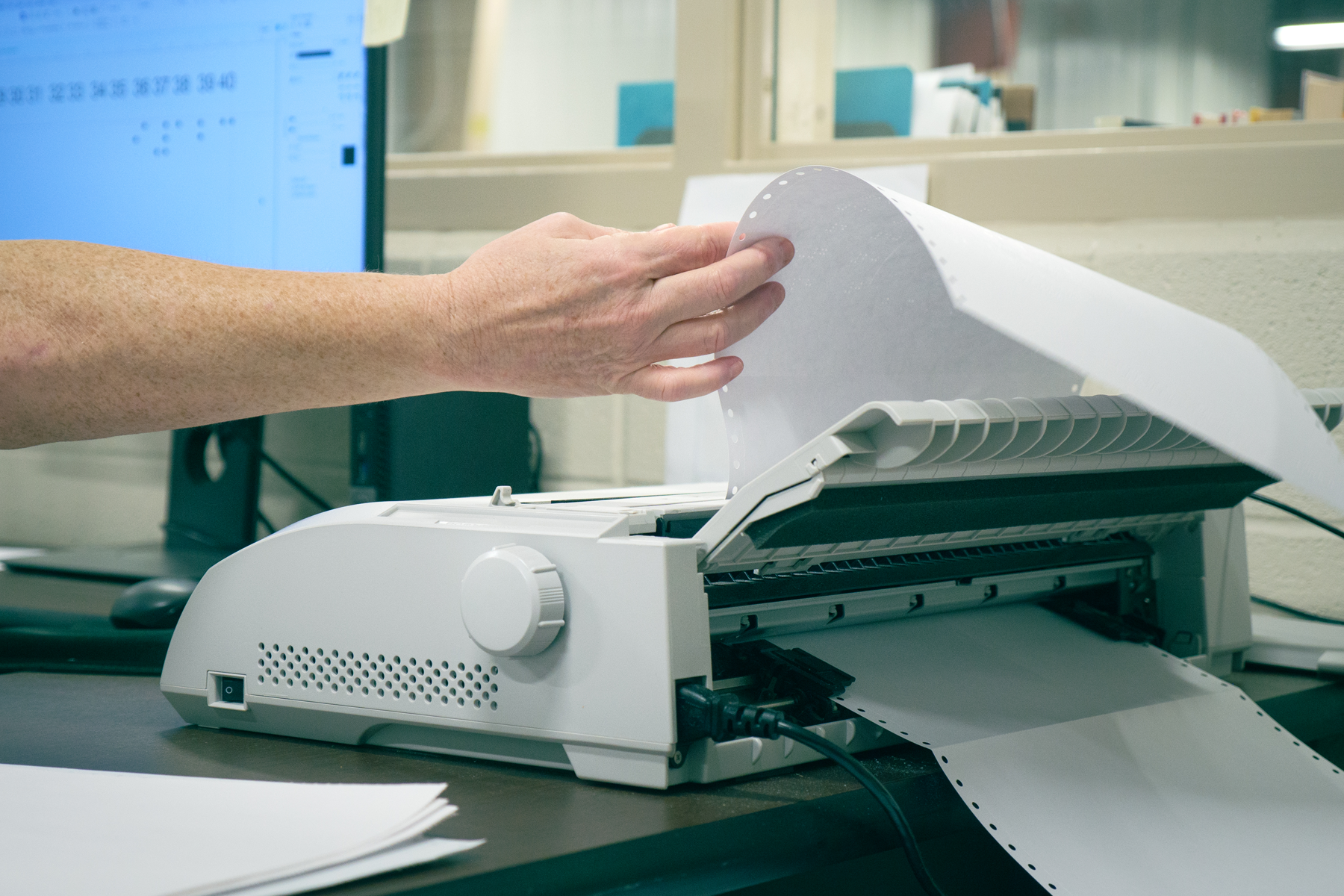
Braille Transcriber Apprentice Program (BTAP)
Through the Braille Transcriber Apprentice Program (BTAP), APH assists qualified transcribers who learned braille and earned national certifications while incarcerated as they transition back into society.
Alternatively, APH may choose to subcontract with a participant for braille transcription services after they return to their home states. If there are braille transcription positions open at APH, qualified BTAP participants are welcome to apply.
To learn more about BTAP and the application process, send an email to NPBN@aph.org.
A major concern of NPBN members is the lack of a support system or the funds needed for offenders leaving prison after serving a long term to get a transcription operation started. Too frequently, highly qualified, motivated, experienced transcribers in prison braille programs across the country do not continue transcribing braille following their release. The NPBN works to rectify this through BTAP recognizing that Braille transcription is an ideal “cottage industry” and, historically, most transcribers have produced braille in their own homes or offices.
Qualified applicants for BTAP are voted on and approved by an advisory committee. If accepted, participants learn additional skills such as braille production and small business management to help them get work as braille transcribers after their release. Upon graduation, APH supplies the apprentices with the tools and machinery they need to start their own freelance transcription business.


Participation Eligibility
To qualify for this model reentry program, applicants must have and understand the following:
- Participated in a prison braille program that is affiliated with the National Prison Braille Network.
- Earned Literary Braille Certification through the NLS (National Library Services for the Blind and Physically Handicapped, Library of Congress).
- Earned at least one advanced certification: Textbook Formatting, Literary Braille Proofreading, Nemeth Braille, Nemeth Braille Proofreading, Music, or Music Associate.
- Gained tactile graphics design and production experience.
- A commitment to pursuing a career in braille transcription.
- Certain offenses may disqualify an applicant from participation in BTAP.
BTAP Partners
APH partners with hundreds of professionals and organizations around the world to develop products, programs, and services that make life better for individuals with vision loss. Key to the success of BTAP is our reach to local, state, and national entities for both their expertise and their support.
On the national level, APH and the National Prison Braille Network has been successful in getting the Department of Justice to add “prison braille programs” to the list of programs eligible to receive federal funding through Second Chance Act grants, and to award grant money to two prison braille programs 2008 funding cycle, totaling $1.5 million.
On the local level, APH is working with Prodigal Ministries, a non-profit agency that provides stability and support to former prisoners, to help recently released offenders develop the community living skills and accountability they need to redirect their lives and become productive citizens. With three transitional houses for men and one for women in the Louisville area, Prodigal Ministries is partnering with APH on BTAP to make housing available for program participants, and to provide access to all transitional services that the agency provides.
Additionally, APH is a member of the Greater Louisville Reentry Coalition and has presented information on prison braille programs to this group. Member agencies have offered their services to help with reentry initiatives in the Louisville area.
APH National Prison Braille Advisory Committee
- Jayma Hawkins
- National Prison Braille Network Senior Director
- Christine Genovely
- Prison Braille Coordinator
- Paul Schroeder
- Vice President of Government and Community Affairs
